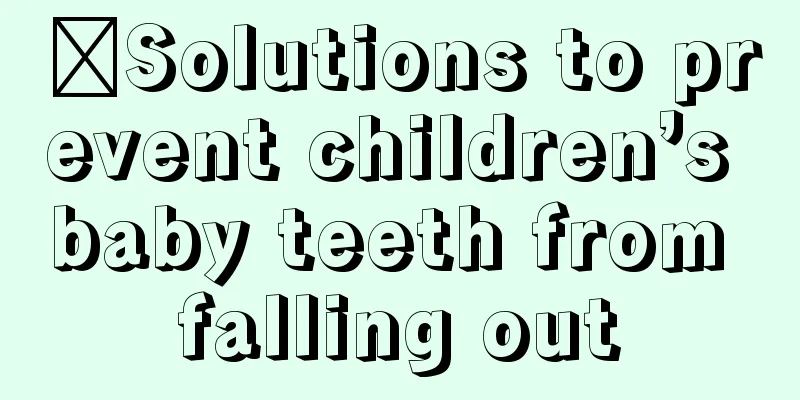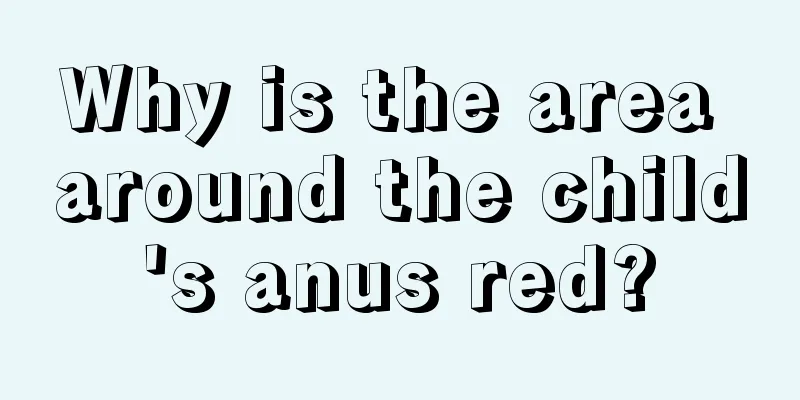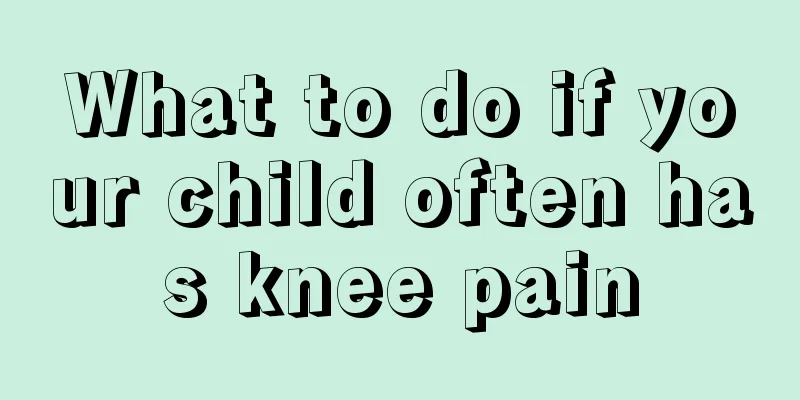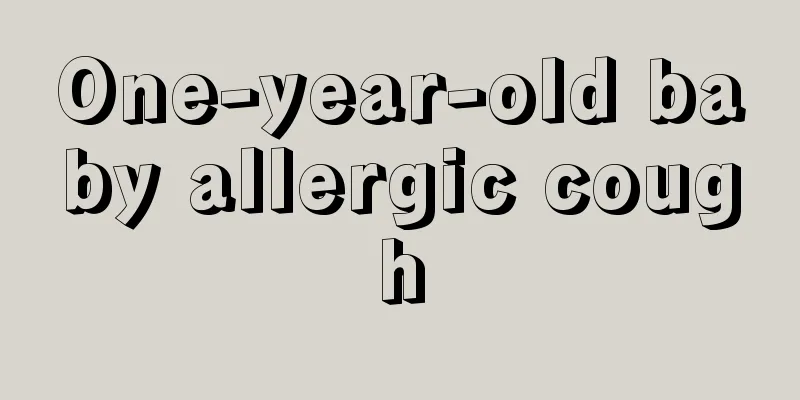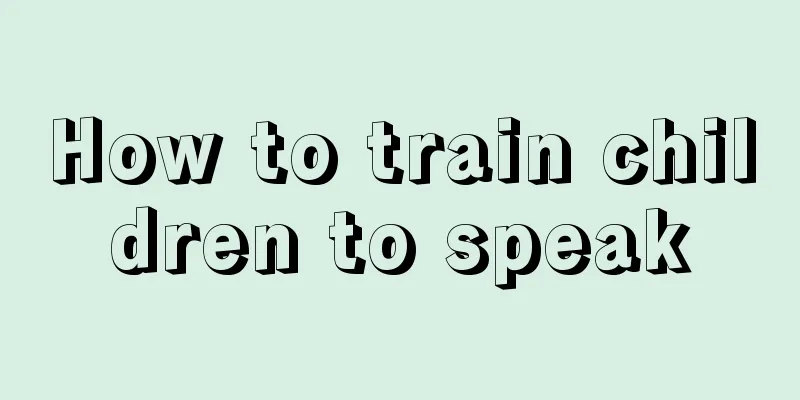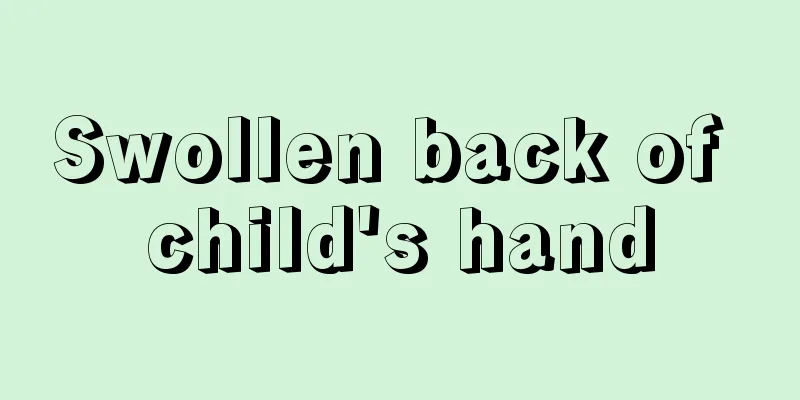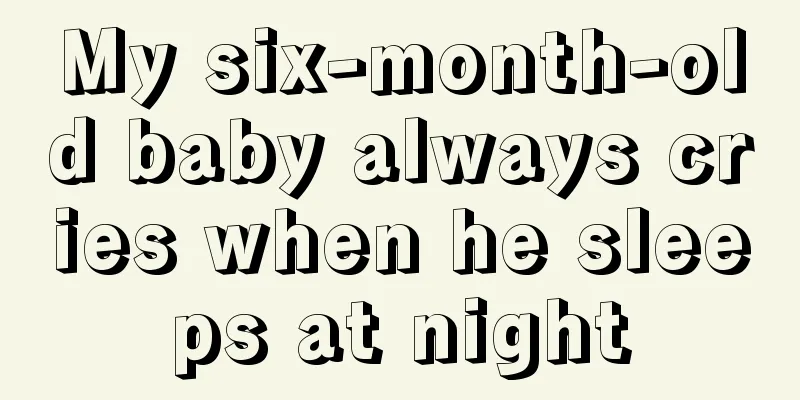What should I do if my baby who is over one month old has a stuffy nose? Is this what the mother does?
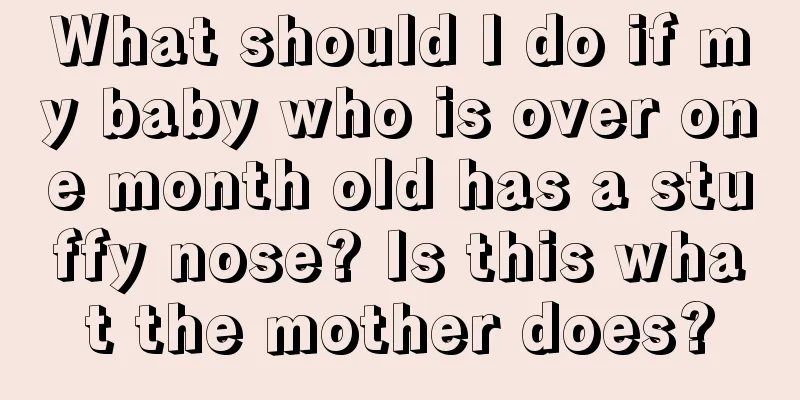
|
Babies over one month old cannot accept adverse external stimuli well, so it is normal for them to have nasal congestion. Generally, it is caused by a cold, accompanied by symptoms such as runny nose, cough, and fever. At this time, you must seek medical treatment; at the same time, pay attention to the living environment and avoid too much noise. 1. The severity of children's colds varies greatly. In mild cases, there is only runny nose, nasal congestion, sneezing, or accompanied by tearing, slight cough, and throat discomfort. It usually heals itself within 3 to 4 days. Sometimes it is also accompanied by fever, sore throat, tonsillitis and swollen lymph nodes. Fever can last from 2 to 3 days to about 1 week. Children's colds are often accompanied by vomiting and diarrhea. In severe cases, the body temperature can reach 39-40℃ or higher, accompanied by systemic symptoms such as chills, headache, general weakness, sharp loss of appetite, and disturbed sleep. 2. Children's cold is a very common minor illness, but it cannot be taken lightly. If it is not treated in time or treated improperly, it can often cause many complications, the most common of which are sinusitis, stomatitis, laryngitis, otitis media and lymphadenitis. It can also cause retropharyngeal abscess, peritonsillar abscess, tracheitis and pneumonia, etc. Sometimes children's colds can spread throughout the body through the blood circulation, causing serious diseases such as sepsis, empyema, meningitis, etc., which are life-threatening. In addition, it can also cause immune diseases such as myocarditis, rheumatic fever, acute nephritis and other diseases. 3. When children catch a cold, parents must follow the doctor's instructions to provide home care. An important point in home care for children with colds is to let the child get enough rest. The younger the child is, the more rest he needs. He can only resume free activities after the symptoms disappear. 4. The second is to take medicine on time. As for most colds, most are caused by viruses, and antibiotics are ineffective. Especially in the early stages of viral infections, antibiotics are not only ineffective, but the abuse of antibiotics can cause dysbiosis in the body, which is conducive to the reproduction of pathogens and aggravates the condition. 5. Third, during the period of cold and fever in children, liquid food, noodles, porridge and other foods should be given according to the child’s appetite and digestive ability. The frequency of breastfeeding for children should be temporarily reduced to avoid indigestion symptoms such as vomiting and diarrhea. 6. Fourthly, the room should be quiet, the air should be fresh, smoking is prohibited, and the temperature should be constant, not too high, too low, or too humid. More attention should be paid when there are symptoms of laryngitis, so that the child can recover soon. If the fever persists or complications occur, you should go to the hospital for diagnosis and treatment in time to avoid accidents. |
<<: What are the symptoms of intellectual disability in children?
>>: How to determine if your baby has developmental delay?
Recommend
Motor speech disorders
When you go to the hospital to see a doctor, many...
How to treat sinusitis in children
Sinusitis is a very common disease in daily life....
What should I do if my baby has a fever and doesn't want to eat?
It is normal for children to lose their appetite ...
28-month-old baby girl's height and weight standard
Our little princess is already 28 months old. She...
What to do if your child coughs while sleeping
Now many parents report that their babies always ...
Child's face twitching
There are many reasons for children's facial ...
What should you pay attention to when your baby starts to eat complementary food?
In fact, many parents do not know how to take car...
Reasons why children have poor sleep
Children's poor sleep is related to environme...
What is the standard for a five-month-old baby?
The growth of the baby is a topic that every moth...
Is benign epilepsy more common in children?
Pediatric epilepsy is usually called benign child...
How serious is the problem of neonatal cerebral edema?
Neonatal cerebral edema is a relatively common di...
Can children with roseola be exposed to the wind?
Roseola infantum is most common in babies aged si...
Rectal medication for children's colds?
It is very common for children to catch a cold. C...
White spots on baby's face
The appearance of white spots on a child's fa...
To create a high IQ baby, you need to pass 8 levels
First of all, it is necessary to explain the IQ t...


